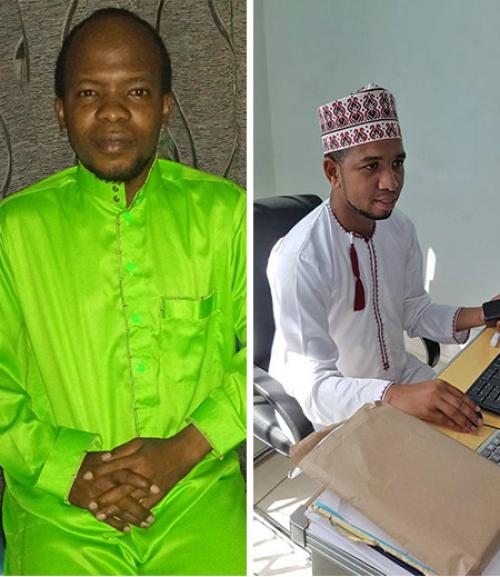The 2017 winners of the Mabati Cornell Kiswahili Prize for African Literature have been announced by Abdilatif Abdalla, chair of the prize’s board of trustees.
The poetry prize winner is Tanzanian poet Dotto Rangimoto, for “Mwanangu Rudi Nyumbani.” The fiction category winner is Tanzanian author Ali Hilal Ali, for “Mmeza Fupa.”
Rangimoto and Ali will each receive $5,000 awards. The prizes will be awarded in Nairobi on Feb. 13.
The Mabati Cornell Kiswahili Prize was founded in 2014 by Lizzy Attree, Caine Prize director, and Mukoma Wa Ngugi, assistant professor of English at Cornell, to recognize writing in African languages and encourage translation from, between and into African languages.
The annual prize is awarded to the best unpublished manuscripts or books published within two years of the award year across the categories of fiction, poetry, memoir and graphic novels. The winning entries are published in Kiswahili by East African Educational Publishers and the poetry winning entry in English translation by Africa Poetry Book Fund.
The other fiction works shortlisted for the 2017 prize were “Kibweta cha Almasi” by Mwenda Mbatiah and “Nsungi” by Hassan Omar Mambosasa. The other poetry works shortlisted were “Hali Halisi” by Mbaruk Ally and “Umalenga wa Nyanda za Juu” by Richard Atuti Nyabuya.
The judges said that in Rangimoto’s poetry “one encounters seductive metaphors and imagery, effectively and successfully used in diverse Kiswahili poetic forms and styles while articulating concerns that have direct bearing to the human condition. Dotto discusses weighty and serious matters but in a manner that doesn’t burden the reader. Instead he encourages one to keep on reading.”
Commenting on Ali’s “Mmeza Fupa,” the judges said that “rarely does one encounter a Kiswahili novel whose writer has exhibited the nuanced mastery of artistic language which naturally flows and without traces of artificiality. In ‘Mmeza Fupa’ the various characters – main and otherwise – convey and represent the different social strata, with their attendant historical, political, psychological, cultural, rural and urban environments and concomitant contradictions.”
The prize is supported by Mabati Rolling Mills Limited of Kenya and ALAF Limited of Tanzania in addition to Cornell’s Office of the Vice Provost for International Affairs, the Africana Studies and Research Center and the Department of English.




